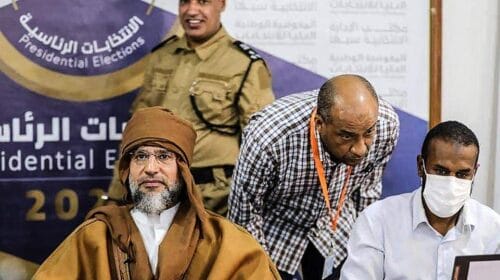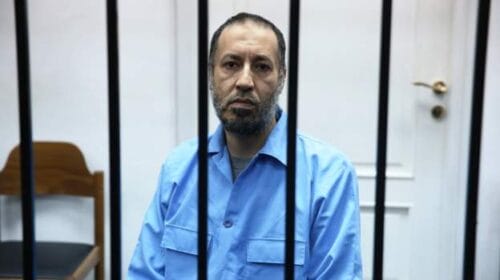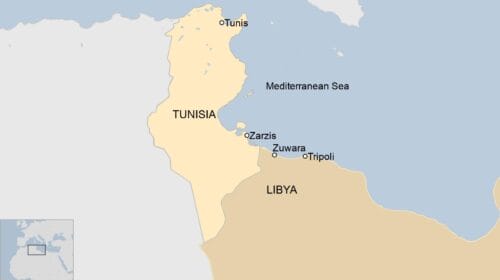US Allies, Egypt and UAE drop bombs in Libya without Washington’s knowledge
We do believe there were air strikes undertaken in recent days by the UAE and Egypt inside Libya,” Pentagon spokesman Rear Admiral John Kirby told a news conference.
The State Department also confirmed the air attacks but officials would not say whether Washington was notified in advance.
An Emirati official told AFP only that his country had “no reaction” to the report, while Egyptian Foreign Minister Sameh Shoukri on Tuesday denied any “direct” role by his country.
The air strikes signalled a step towards direct action by regional Arab states that previously have fought proxy wars in Libya, Syria and Iraq in a struggle for power and influence.
View galleryThe damaged interior of the main building at Tripoli …
The damaged interior of the main building at Tripoli international airport in the Libyan capital, Au …
Islamist forces in Libya alleged at the weekend that Egypt and the UAE were behind the air raids.
Earlier, two US officials told AFP the United States did not take part or provide any assistance in the bombing raids, although they could not confirm that Egypt and the UAE had left Washington totally in the dark about the attacks.
The first strikes, on Monday last week, focused on militia targets in Tripoli, including a small weapons depot, according to a New York Times report on Monday.
A second round south of the city early Saturday targeted rocket launchers, military vehicles and a warehouse, it said.
Those strikes may have been a bid to prevent the capture of the airport, but the Islamist militia forces eventually prevailed anyway.
View galleryEgyptian Foreign Minister Sameh Shoukri holds a press …
Egyptian Foreign Minister Sameh Shoukri holds a press conference in Tunis on August 4, 2014 (AFP Pho …
– No ‘direct’ Egypt role –
The UAE — which has spent billions on US-made warplanes and advanced weaponry — provided the military aircraft, aerial refuelling planes and crews to bomb Libya, while Cairo offered access to its air bases, the Times said.
Egypt’s Shoukri said: “We have no direct tie to any military operation in Libya.”
However, he told journalists in Cairo: “We help the Libyan armed forces by supplying their requirements for training.”
Egypt, Saudi Arabia and the UAE view Islamist militants in the region as a serious threat and have cooperated against what they see as a shared danger.
View galleryAn Islamist fighter from the Fajr Libya coalition flashes …
An Islamist fighter from the Fajr Libya coalition flashes the V sign for victory at the entrance of …
“I think this strike is the unsurprising result of a momentum we’ve seen building in Libya… and within the region amongst Egypt and these Gulf states,” said Frederic Wehrey of the Carnegie Endowment for International Peace.
“I believe there was no consultation with the West,” said Wehrey, a specialist on the Gulf, Libya and US policy in the Middle East.
Abdulkhaleq Abdulla, political science professor at Emirates University, said: “The lesson of Syria still resonates… that you cannot depend on America or the West… America is no longer reliable.”
News of the raids came after Libya’s Islamist-dominated General National Congress on Monday threw down the gauntlet to the interim government by naming a premier-designate to form a rival administration.
The GNC, officially replaced earlier this month by a freshly elected parliament, selected pro-Islamist Omar al-Hassi to form a “salvation government”, a spokesman said.
“The GNC dismissed (interim premier) Abdullah al-Thani as head of government and gave Omar al-Hassi a week to form a salvation government,” Omar Ahmidan told journalists in Tripoli, where GNC members met.
At the same time, Libya’s new army chief Abdel Razzak Nadhuri declared “war on terrorists” after parliament, holed up 1,600 kilometres (1,000 miles) east of Tripoli in Tobruk, nominated him to tackle the unrest sweeping the nation.
Thani rejected the GNC’s decisions, saying: “The meeting was illegal, its decisions are illegal and the only legislative body is parliament.”
The Fajr Libya (Libya Dawn) mainly-Islamist alliance seized Tripoli airport at the weekend after weeks of skirmishes with nationalist militia who had controlled it since the overthrow in 2011 of long-time dictator Moamer Kadhafi.
Fajr Libya, chiefly fighters from Misrata, east of Tripoli, on Tuesday rejected a call from Ansar al-Sharia, controllers of around 80 percent of the eastern city of Benghazi, to unite under one banner.
They said in a statement published by the LANA news agency that they “respect the constitution and the peaceful transfer of power.”
Ansar al-Sharia is an Al-Qaeda inspired group that is on the US terror blacklist for its alleged role in a deadly 2012 assault on the US consulate in Libya’s second city.



